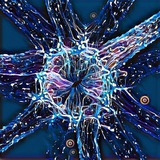group-telegram.com/neural_cell/200
Last Update:
Philosophy of mind - worth it in 2024?
A relatively recent Giulio Tononi talk (IIT theory) at my university (not recorded) sparkled my interest in consciousness research. Turns out this area is exactly what seemed most fun to me even though I did not realize it.
After all, all there is to catch the Zen of this life it is to make sense about thy own mind...
2022 - 2023 presented us with lively debates about the neural basis of consciousness, with the most prominent opponents being integrated information theory (IIT) and global workspace theory (GWT). I recommend checking out this nature letter for more info on the clash between theories. Additionally, there is a cool review by A.Seth and T.Bayne about neuro-consciousness theories.
I came to conclusion that to even start digging into it neural basis of consciousness, might be useful to look at what our fellow philosophers of mind did (over the course of the last 300 years...). To my surprise, it does not seem that at least John Seerle (the author of a famous Chinese room thought experiment) is incompetent in the neural part of mind-body approaches.
I have to admit as a snob computational neuroscientist I highly doubt non-empirical reasoning. However, the philosophy of mind course by J.Seerle seems super fun and comprehensive. So far it discussed relationships between syntax and semantics, computational theory of the mind, different forms and shapes of materialism, connectionism and others, with the focus on heavy critiques of those 😁
So for anyone like me, trying to get the grasp on mind and body relationships while staying true to the rational, emprical neuroscience , I highly recommend this course (I listen to it like a podcast). Super fun and informative, an easy listen.
▶️ [youtube playlist link]
The plan is to finally understand IIT and neural theories of consciousness after being armed with philosophical arguments. Good luck to me/us

